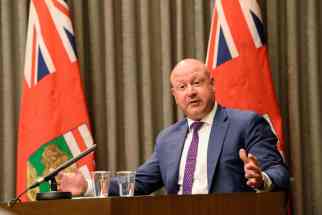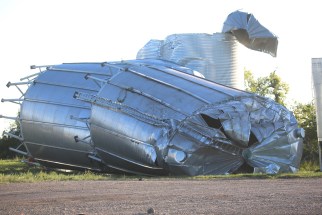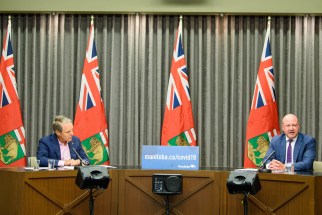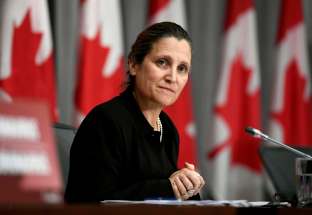Freeland no longer inclined to play nice
Read this article for free:
or
Already have an account? Log in here »
To continue reading, please subscribe:
Monthly Digital Subscription
$0 for the first 4 weeks*
- Enjoy unlimited reading on winnipegfreepress.com
- Read the E-Edition, our digital replica newspaper
- Access News Break, our award-winning app
- Play interactive puzzles
*No charge for 4 weeks then price increases to the regular rate of $19.00 plus GST every four weeks. Offer available to new and qualified returning subscribers only. Cancel any time.
Monthly Digital Subscription
$4.75/week*
- Enjoy unlimited reading on winnipegfreepress.com
- Read the E-Edition, our digital replica newspaper
- Access News Break, our award-winning app
- Play interactive puzzles
*Billed as $19 plus GST every four weeks. Cancel any time.
To continue reading, please subscribe:
Add Free Press access to your Brandon Sun subscription for only an additional
$1 for the first 4 weeks*
*Your next subscription payment will increase by $1.00 and you will be charged $16.99 plus GST for four weeks. After four weeks, your payment will increase to $23.99 plus GST every four weeks.
Read unlimited articles for free today:
or
Already have an account? Log in here »
Hey there, time traveller!
This article was published 10/08/2020 (1952 days ago), so information in it may no longer be current.
Deputy Prime Minister Chrystia Freeland came out swinging last Friday against the threatened imposition of a ten-per-cent import tariff on Canadian aluminum by the administration of U.S. President Donald Trump. The U.S. action is unwarranted and unacceptable, she said, and Canada will hit back with corresponding tariffs on selected products imported from the U.S.
Ms. Freeland has tended to tread softly in dealings with the Trump administration, as though to avoid making them mad. Not so last Friday. No more Ms. Nice Guy. Canada will not escalate but will not back down, she said. Our retaliation will exactly match the U.S. action. But it’s wrong, she said, to raise consumer prices this way and erect trade barriers while both countries are trying to recover from a coronavirus-induced recession.
The U.S. action is being attempted under a provision in U.S. trade law that allows the president to impose tariffs for reasons of national security. Canada, Ms. Freeland said, has been a reliable supplier of aluminum to U.S. industry, including defence industries, for decades and cannot be considered a threat to U.S. national security.
Ms. Freeland had to tiptoe around the U.S. claim that there has been a surge in U.S. imports of Canadian aluminum. Surges lie partly in the sales figures and partly in the eye of the beholder. The U.S. government sees a surge. Ms. Freeland didn’t want to discuss it.
The minister’s aggressive tone reflected growing Canadian impatience with U.S. protectionism and the dwindling authority of Mr. Trump.
The minister’s aggressive tone reflected growing Canadian impatience with U.S. protectionism and the dwindling authority of Mr. Trump. Prime Minister Justin Trudeau passed up an invitation to visit Mr. Trump in Washington on July 8 to mark the entry into force of the new Canada-U.S.-Mexico trade treaty, pleading COVID-19 risk and the press of government business. There is no applause to be won in Canada these days by chumming around with Donald Trump.
The U.S. president, moreover, seems likely to lose his re-election bid in November. He is trailing in the polls behind his Democratic rival, former vice-president Joe Biden. His efforts to curtail the coronavirus pandemic and restore economic activity, such as they are, have achieved little benefit for his people. In these circumstances, Ms. Freeland is emboldened to stand up fiercely for Canada, whether Mr. Trump likes it or not.
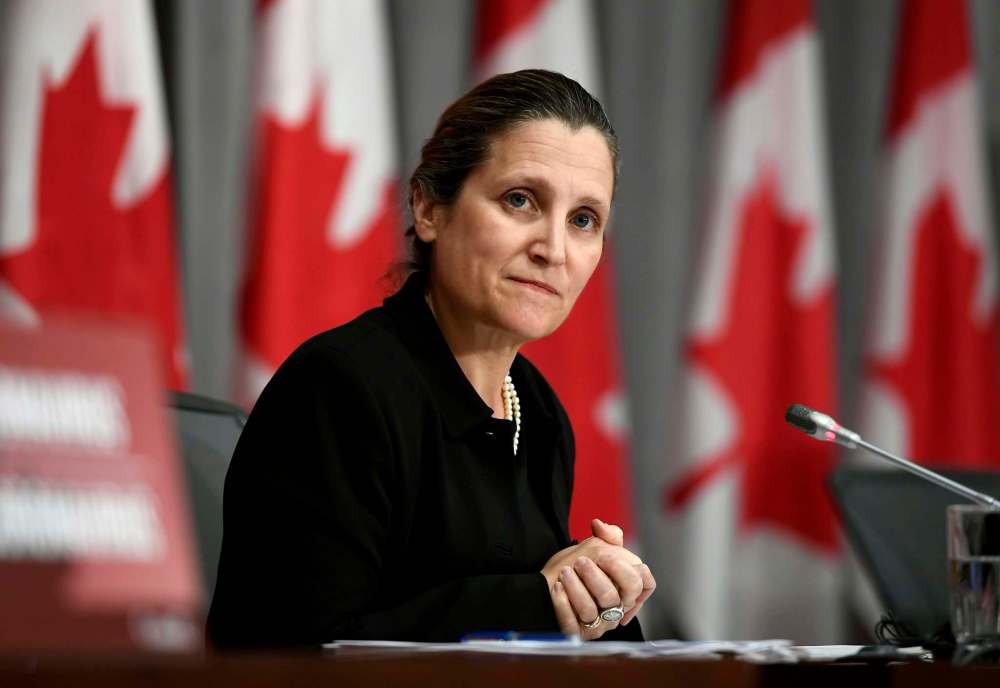
Winning applause from Canadians is all very well, but the government’s main aim should be to stop this trade war before it starts. Canada achieved good results in trade treaty negotiations two years ago by making its case loudly and often to U.S. politicians and industry leaders who trade with Canada.
Visits to the U.S. are more difficult than they used to be, what with the pandemic and all, but Ms. Freeland should find other ways to mobilize the U.S. friends of trade with Canada, especially the industries and consumers who will literally pay the price Mr. Trump is imposing on them with the tariff announcement he made in Ohio at a Whirlpool washing machine plant.
Mr. Trump’s tariff will drive up the price of those washing machines, Ms. Freeland pointed out. Good point. The same point is worth making over and over again, in all the U.S. markets where more expensive cans of beer are being popped open and costlier home appliances are being installed.



